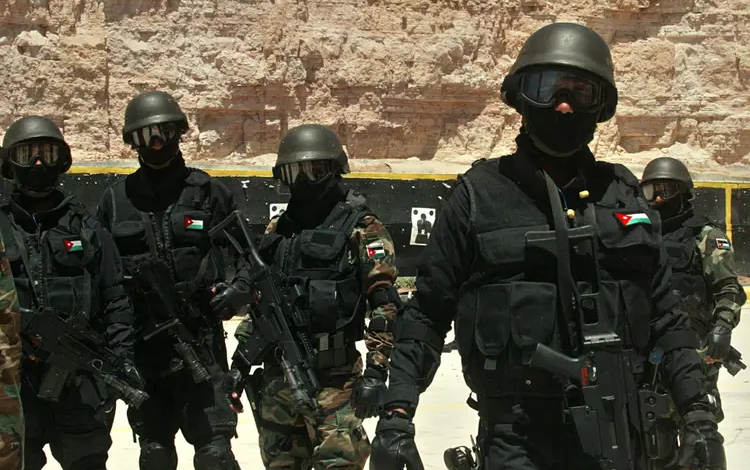Jordan Foils Armed Plot by Infiltrators from Syria Linked to Pro-Iranian Militias

The Jordanian army successfully thwarted a major cross-border operation on Monday, revealing a plot orchestrated by dozens of infiltrators from Syria with ties to pro-Iranian militias. The infiltrators, armed with rocket launchers, anti-personnel mines, and explosives, attempted to breach the Jordanian border, marking one of the largest armed incursions in recent years.
The State broadcaster, al Mamlaka, reported that the army detonated a vehicle loaded with explosives during the confrontation, resisting the infiltrators’ efforts to smuggle weapons and drugs. The infiltrators retreated back across the border, leaving several Jordanian army personnel injured. The clashes, which have escalated over the past month, resulted in casualties on both sides, including one Jordanian soldier and at least a dozen smugglers.
Intelligence sources revealed that in response to the smuggling operation, Jordanian jets carried out rare raids into northern Syria. The airstrikes targeted hideouts of Iranian-backed drug smugglers, focusing on homes of leading drug dealers and farms identified as safe houses for heavily armed traffickers who have been utilizing drones for smuggling operations.
Jordanian officials, echoing concerns raised by Western allies, implicated Lebanon’s Iran-backed Hezbollah group and pro-Iranian militias in southern Syria in the surge of drug and weapons smuggling. Former minister Samih Maayteh, briefed on developments, stated, “Jordan knows the country that stands behind this. It’s Iran that is sponsoring these militias. These are hostile military actions against Jordan on its territory.”
In response to the allegations, Iran and Hezbollah dismissed them as part of Western plots. Syria, too, denied complicity with Iranian-backed militias linked to the army and security forces.
U.N. experts and U.S. and European officials have highlighted the connection between the illicit drug trade and the financing of pro-Iranian militias and pro-government paramilitary forces in Syria. The ongoing conflict in Syria has turned the nation into a hub for a multi-billion-dollar drug trade, with Jordan serving as a crucial transit route to the Gulf states for a Syrian-made amphetamine called captagon.
The Jordanian army announced the seizure of nearly five million pills of captagon on Monday, marking one of the largest hauls in recent years. The army issued a warning, stating its commitment to “continue to track these armed groups and prevent any attempt to undermine the kingdom’s national security.”
As tensions rise, Jordan’s Foreign Minister Ayman Safadi urged Iran to take action against the militias it finances along the Syrian-Jordanian border. Concurrently, discussions between Jordan’s monarch, a staunch U.S. ally, and General Charles Q. Brown, chairman of the Joint Chiefs of Staff, centered on bolstering the country’s defenses. Jordan is set to receive additional U.S. military aid to enhance border security, with approximately $1 billion already allocated since the start of the Syrian conflict in 2011.





